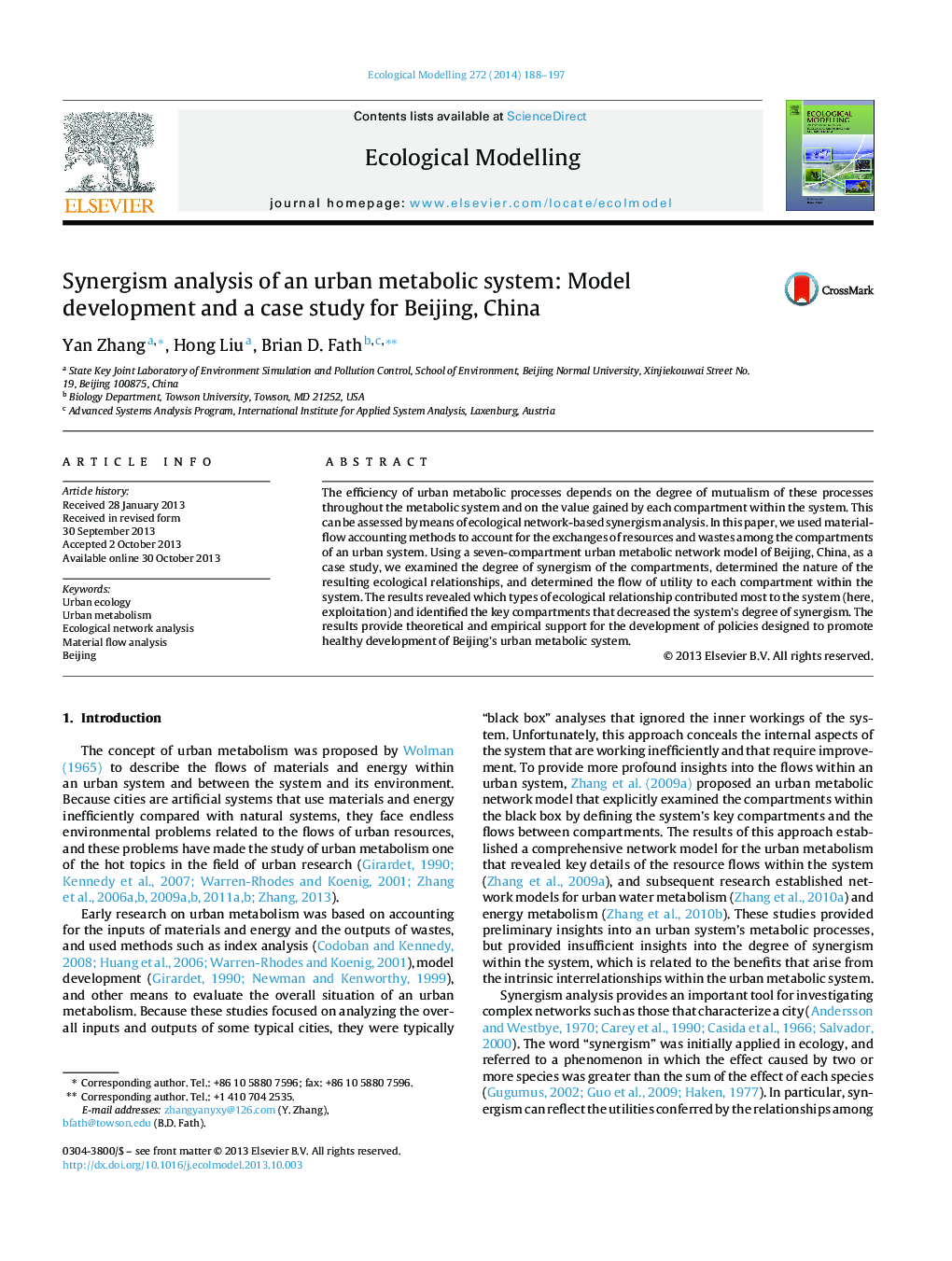| Article ID | Journal | Published Year | Pages | File Type |
|---|---|---|---|---|
| 6296999 | Ecological Modelling | 2014 | 10 Pages |
Abstract
The efficiency of urban metabolic processes depends on the degree of mutualism of these processes throughout the metabolic system and on the value gained by each compartment within the system. This can be assessed by means of ecological network-based synergism analysis. In this paper, we used material-flow accounting methods to account for the exchanges of resources and wastes among the compartments of an urban system. Using a seven-compartment urban metabolic network model of Beijing, China, as a case study, we examined the degree of synergism of the compartments, determined the nature of the resulting ecological relationships, and determined the flow of utility to each compartment within the system. The results revealed which types of ecological relationship contributed most to the system (here, exploitation) and identified the key compartments that decreased the system's degree of synergism. The results provide theoretical and empirical support for the development of policies designed to promote healthy development of Beijing's urban metabolic system.
Related Topics
Life Sciences
Agricultural and Biological Sciences
Ecology, Evolution, Behavior and Systematics
Authors
Yan Zhang, Hong Liu, Brian D. Fath,
